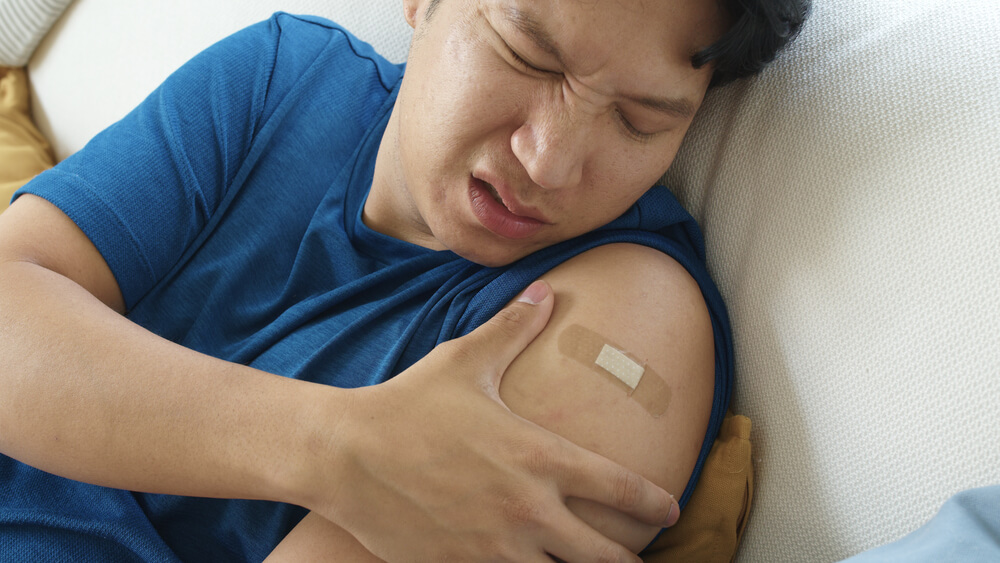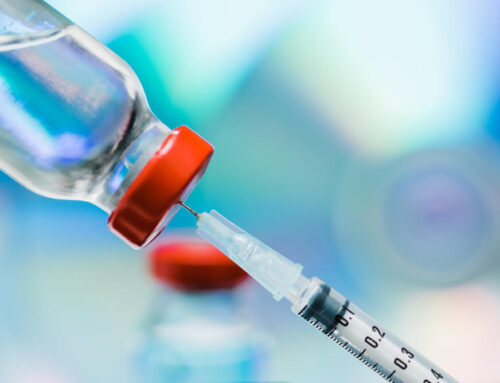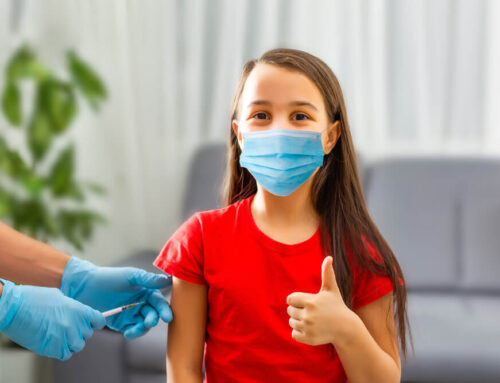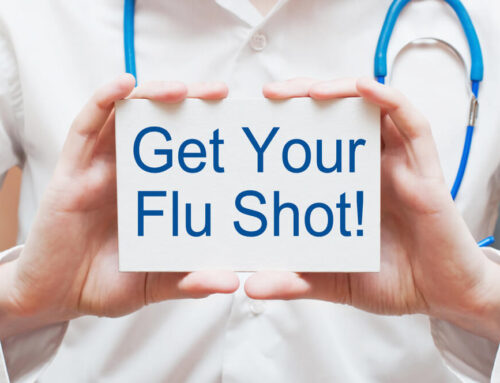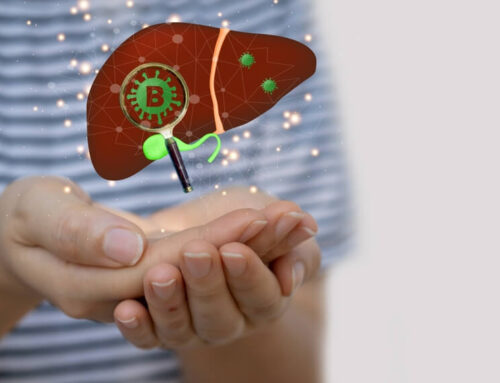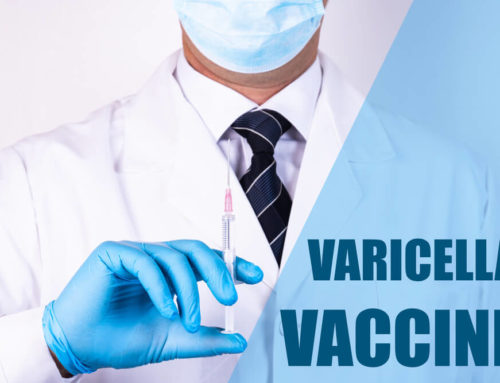Getting vaccinated is one of the biggest fears of children and some adults. However, vaccines are needed to help the body fight against serious diseases such as the flu or influenza, hepatitis A and hepatitis B, Polio, and COVID-19. Unfortunately, a sore arm after the vaccine is a common occurrence that may make you think something’s wrong. Luckily, we’re here to shed light on the topic of why your arm hurts after a vaccine and some of the best arm pain exercises for relief.
Before jumping in, we want to stress that you should always consult with experienced and skilled professionals. A smart choice is getting your vaccine in Hialeah, Florida, where you’ll also get all your questions answered.
With that in mind, here are the facts on having a sore arm after the vaccine and the top arm pain exercises to keep in your itinerary.
How Do Vaccines Even Work?
Why does the arm hurt after a vaccine? To understand this, we first need to explain briefly how vaccines function. In brief, a vaccine will simulate infections without actually causing them.
When a person’s immune system is exposed to bacteria or a virus, it learns how to combat the infection and creates a “memory” to be more effective at tackling it the next time we get sick.
Vaccines expose a patient’s immune system to non-infectious forms of bacteria or a virus (germs), allowing the body to develop this “protective memory” without the risk of infection.
So, Why Does the Arm Hurt After a Vaccine?
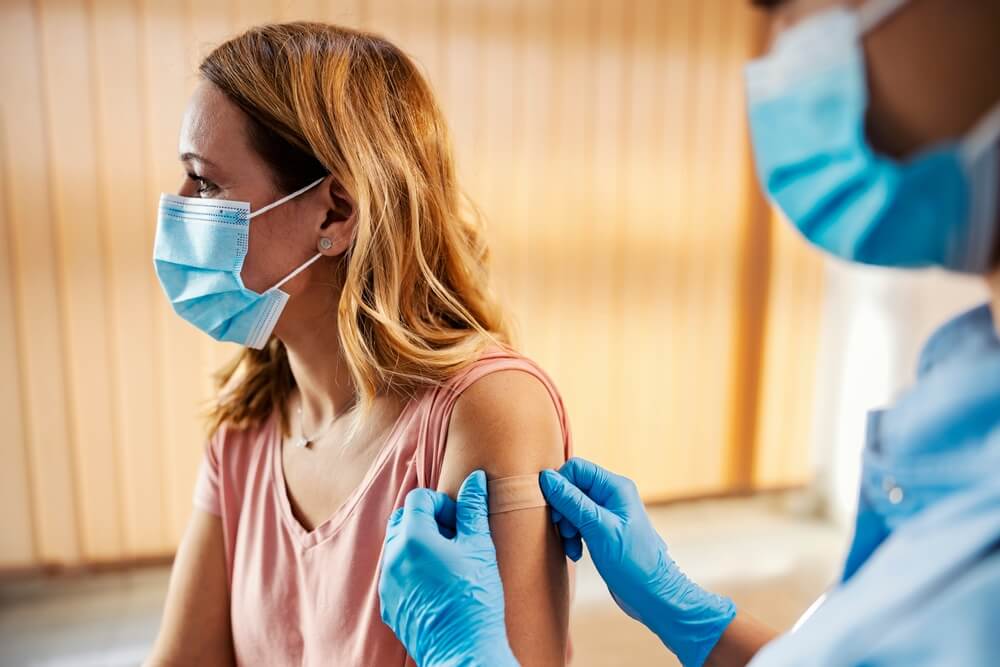
As a result, the vaccine will trigger the immune system, causing sickness symptoms, including soreness, chills, fever, and fatigue. Although these symptoms are usually referred to as “side effects” of a vaccine, they also signal that the immune system is functioning. And that’s good news. With all of this in mind, the answer to the question of “why does the arm hurt after a vaccine?” is simple. Your immune system is doing its job.
The Covid Vaccine and Arm Pain
The vaccine for COVID-19 is an intramuscular injection, so it’s injected into your muscle (commonly in the deltoid muscle). Since the deltoid gives your shoulders a range of motion, you may experience mild pain in that area too. The vaccines for coronavirus “trick” the immune system into believing the virus is attacking it. As a consequence, the body sends white blood cells for protection.
You might be worried if you’re experiencing a sore arm after the vaccine. However, this is a normal side effect, and it should go away within a few days. With this in mind, if the pain lasts longer and the symptoms appear to start getting worse, consult a healthcare provider immediately.
How to Deal With a Sore Arm After the Vaccine
The symptoms of getting a vaccine are typically mild, and they go away within only a few days. However, if you find the arm pain after a vaccine unbearable, you can do a few things to alleviate this uncomfortable feeling. Here are five useful exercises to make the arp pain after a vaccine manageable.
Do Lateral Deltoid Raises
Lateral deltoid raises are an effective and easy way to get rid of arm pain after a vaccine. You do this exercise by standing (or sitting for boosted comfort) and having your palms face down. Next, you’ll want to raise the arms with the elbows straight up to your shoulder level. Repeat this exercise a couple of times.
Try Standing Shoulder External Rotations
Another excellent exercise for vaccine arm pain is keeping the elbows at the side with the thumb up, and the elbow bent. To do this exercise correctly, you’ll want to make sure the forearm is parallel to the floor. Next, rotate your hand away from your abdomen. Always make sure to keep the elbow in and maintain the position of the forearm.
Consider the External Rotation in 90 Degrees Abduction (Standing)
To start this effective workout for vaccine arm pain, have your elbows bent and the arms at shoulder level. After this, rotate the hands up to your head while maintaining the elbows at shoulder level.
Try the Horizontal Abduction + External Rotation
This technique for vaccine arm pain is also great for improving shoulder mobility. Begin by holding the arms at shoulder level with your palms up. Next, you’ll want to reach your arms out beside your body and slowly come back to the middle. Repeat.
Try the Overhead Press
If you’re are experiencing shoulder pain after the vaccine, you might want to consider doing the overhead press. You begin by placing your hands in front of your chest. Make sure the elbows are bent to perform this exercise properly. Next, press the arms up overhead and straighten your elbows. If you want to challenge yourself (and build some muscle in the meantime), you can try the popular dumbbell overhead press.
Repetition is Key for Recovery
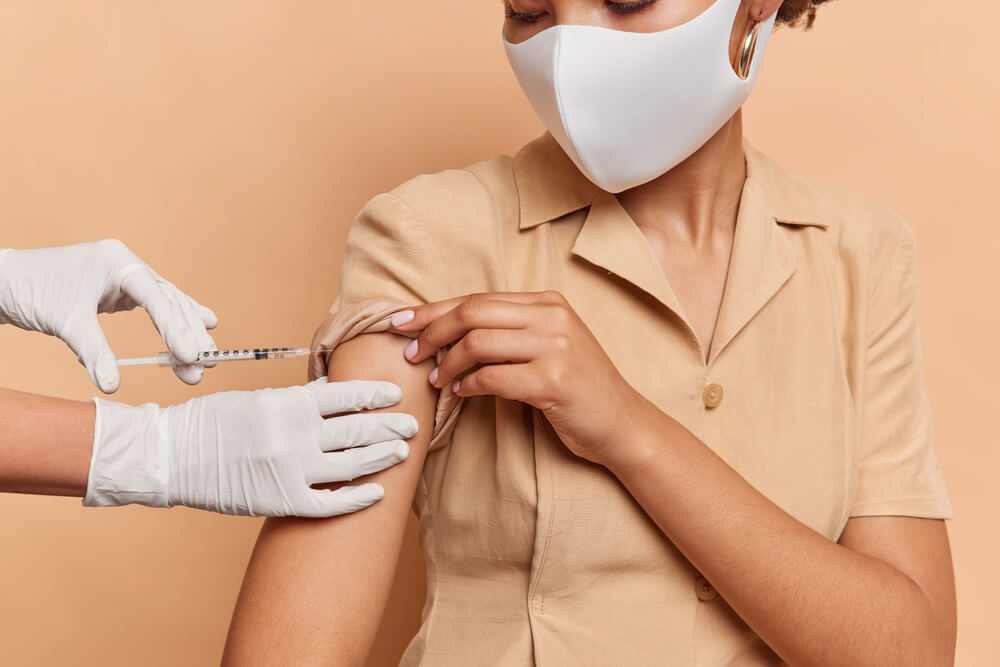
Now that you know which exercises work for vaccine arm pain, let’s discuss the obvious. You’ll want to repeat these exercises repeatedly to reduce local soreness in your muscles and disperse the vaccine. These techniques are also great if you’re experiencing shoulder pain after the vaccine.
When the soreness from the vaccine is gone, you can stop with the exercises. However, even if you don’t have shoulder pain after the vaccine, you can reap benefits from practicing these techniques for mobility.
Alternatives to Exercises
If you don’t want to perform the exercises in the article, you don’t have to. You can wait for the soreness to go away on its own, or you can treat it with a cool compress. You’ll want to apply a clean, wet cloth that you’ve cooled down for this method. Place it over the sore area to reduce pain and inflammation. You can also use ice cubes.
Another way to alleviate the arm pain is to continue using your arm in everyday life. So, whether you’re cooking, cleaning, or doing errands, make sure to activate the arm muscles.
Of course, if the pain is getting out of hand, you can also take pain medication. In addition, over-the-counter medicines such as aspirin and ibuprofen work well with post-vaccination pain and arm soreness. Word of warning: Talk to your doctor first. Do not self-medicate without expert advice and guidance.
Turn To Skilled Professionals for Immunization Shots and Expert Help
Now more than ever, you’ll want to protect yourself and your loved ones from illnesses such as coronavirus. Having the proper immunization schedule is essential to ensure your health is top-notch. For expert help, advice, and anything you need, reach out to our team at Carreras Medical Center. Book your first appointment today.

